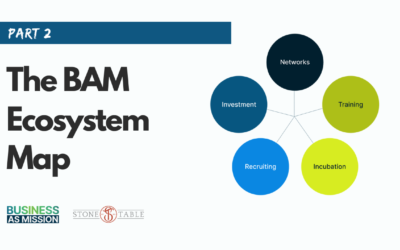Does Your Secular Job Make You Feel Like a Second-Class Christian

W hen I was growing up, there were two major life paths we discussed within the context of our youth group and church culture (that is, when we weren’t debating the spiritual impact of Amy Grant’s crossover albums or whether movie-going became sinful at PG-13 or R). The conversation usually went something like this:
“Have you been called into full-time ministry, or are you going into the secular world?”
Or sometimes we phrased it this way:
“Are you planing to enter the ministry or fund the ministry?”
A third iteration might have emerged in more missional terms:
“Are you a sender or a goer?”
As a high school kid longing to serve God and live out my faith in this world, I was keenly aware of this sacred/secular fork in the road. It quietly plagued many of us as we watched peers respond to altar calls at youth group rallies or emotionally-charged church camp services aimed at separating the chosen from the unchosen, the called from ordinary, the truly elect from the “financial supporters.”
Please don’t misunderstand, there is something holy and unique about full-time vocational ministry, of taking on the weighty role of an ecclesiastical leader within the life of a local church body (I know, I spent 12 years in just such a role). My concern is not that we’ve over-inflated this high calling, but that we may have unintentionally relegated business and everyday work to a tier of second-class christianity.
I recently had the honor of attending a gathering of businessmen, pastors, and leaders from all over the world to discuss 21st Century global trends and how they are impacting (or need to be impacting) the way we do ministry and missions work today. From Europe, to China, to India, Africa, and America, so many insights, angles, and ideas emerged I couldn’t write fast enough to record the barrage. But from beneath the fog of all this brilliant commentary, one key mantra continually resonated with my business-turned-pastor-turned-business-leader spirit:
Across the globe, ministry leaders are asking how we can break down this “sacred/secular” divide; about our need to harness the business community as a full-on ministry partner and not just limit their involvement to financial giving alone.
Here are a few questions to ponder:
What would it look like to see business as more than just an ATM machine for “real ministry,” but as an actual Kingdom solution?
What would it look like to better engage business people in ministry and mission – not only through their secondary giftings as ushers and choir members or Sunday school teachers – but through their primary, God-given gifts and talents as businessmen and women?
What would it look like to begin championing business and everyday work as “sacred” work? To develop a healthier and more holistic theology of work itself?
I’m starting this conversation in my own circles and would love to invite you into the dialog. What do you think? Have we misdefined sacred and secular when it comes to our work? Do these walls need to be broken down? If so, how?


